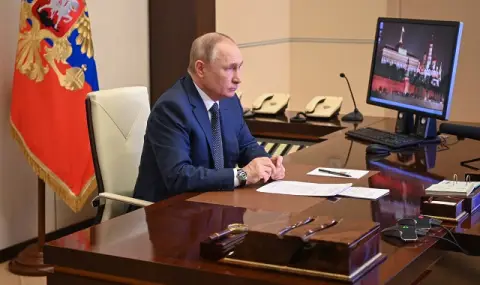< p>The Kremlin is conducting an intensified information campaign aimed at forcing Ukraine to negotiate with Moscow on Russian terms.
Any Russian, Western or other efforts to push Ukraine into premature negotiations with Russia will only weaken Ukraine and encourage further Russian aggression in Ukraine and beyond.
This is stated in the daily analysis of the Institute for the Study of War (ISW).
Hungarian Prime Minister Viktor Orbán is likely to use his unannounced visit to Kiev on July 2 to position himself as a peacemaker following Hungary's assumption of the presidency of the Council of the European Union (EU) on July 1, but it is highly unlikely that the effort of Orban to bring about some kind of stable peace in Ukraine.
The interplay between ongoing Russian offensive operations in the Chasov Yar, Toretsk and Avdeevka directions indicates that the Russian military command may intend to use the current pressure in Toretsk to create operational opportunities to advance in the Chasov Yar or Avdeevka area.
Russian preparations, which can support multiple future plans for different lines of attack, suggest a more advanced level of operational planning and foresight than the Russian command has proven capable of executing so far in the war since early 2022.
ISW suggests that in the event of the capture of Toretsk, the Russian command expects to turn this area into a springboard for an advance either to the north, towards Chasov Yar, or to the southwest, towards Avdeevka and Pokrovsk, depending on which direction the direction looks more promising.
The decision to attack near Toretsk shows that the Russian command can plan operations with more foresight and with a better understanding of the operational situation than before, when the Russian command conducted various offensive operations on unrelated sectors of the front, the analysts wrote.
p>
At the same time, they question the ability of the Russian military to translate these ideas into reality and turn tactical successes into operationally significant breakthroughs, which in turn depends on the quality of parts on the ground, which may not be high.
Most of the units concentrated near Toretsk are low-quality forces and territorial troops of the Donetsk People's Republic, which are more likely to have difficulty in properly conducting attacks, especially since Ukraine will receive new military aid in the coming weeks and months, writes ISW.
Recently, Russian forces advanced near Volchansk, Chasov Yar, Avdeevka and the border region of the Donetsk-Zaporizhsky region.
Russia is reportedly recruiting women from Russian penal colonies to fight in Ukraine, and some of these recruits are fighting on the front lines.
Several members of Russia's State Duma have proposed a bill that would exclude a significant number of ethnicities from Russia's ``compatriots'' resettlement program, undermining the Kremlin's efforts to use its ``compatriots abroad''. to compensate for manpower shortages in Russia and to create informational conditions to justify potential hybrid operations against other countries with Russian and Russian-speaking populations.
On July 1, Ukrainian forces struck an ammunition depot at a Russian military base in occupied Crimea that reportedly housed "Shaheed" unmanned aerial vehicles.
Russia may step up its efforts to conduct reconnaissance and disrupt communications in underwater and airspace near NATO countries.
Russian authorities appear to be publicly fixating on crackdowns on fight clubs and restrictions on the wearing of the niqab to signal that Russian authorities are adequately combating terrorist threats in the North Caucasus, rather than addressing the systemic problems of Islamic extremism in the region.
On July 2, Russian President Vladimir Putin signed a decree awarding the 999th Russian Air Force Base in Kant, Kyrgyzstan the honorary rank of "Guardsman" for "mass heroism and bravery".
